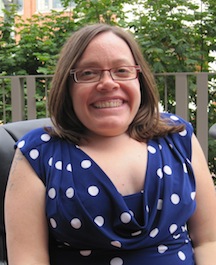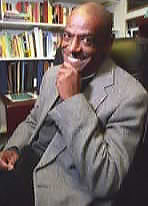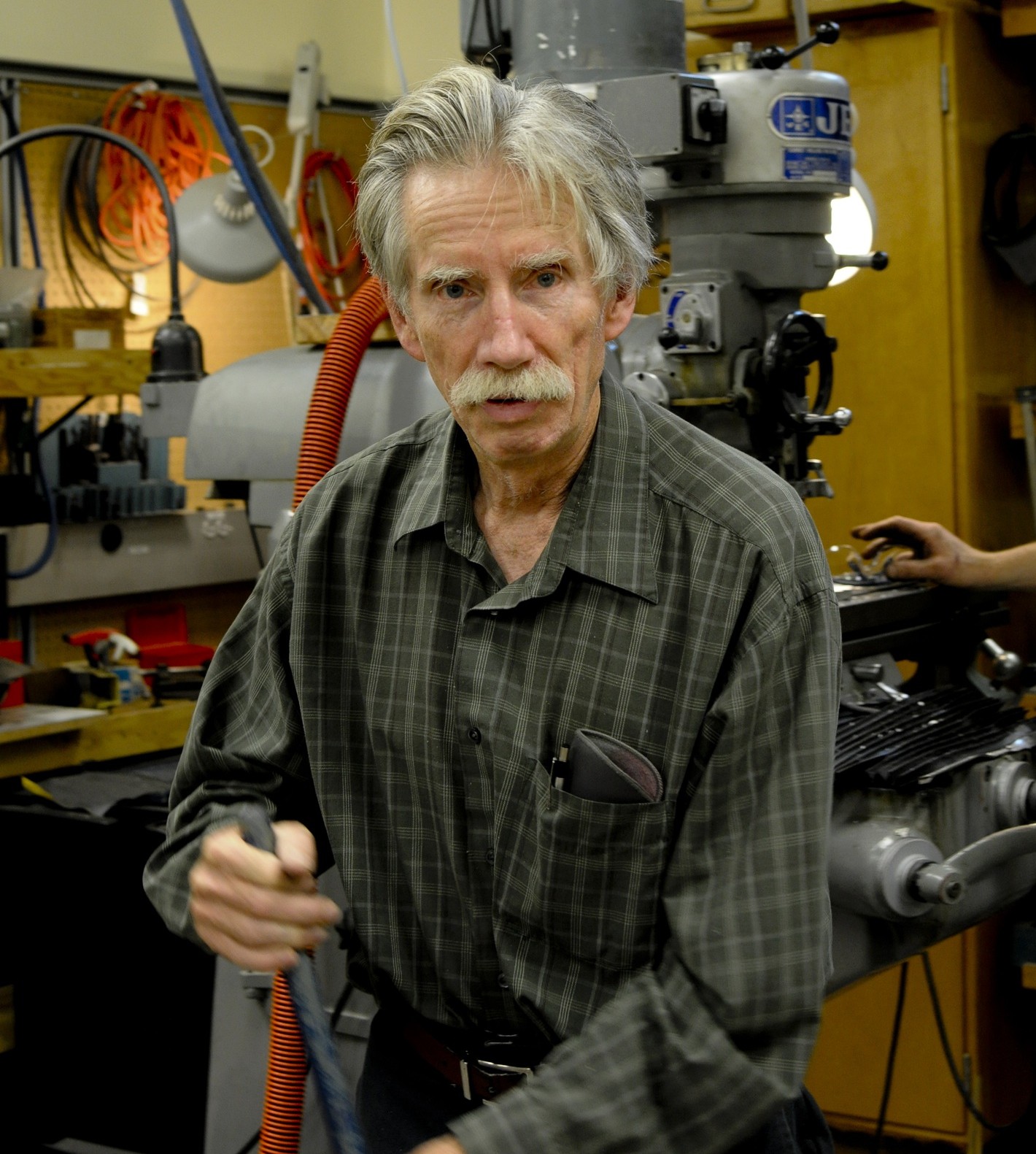Emelie Peine does not fit the typical image of a professor. After obtaining her undergraduate degree at Evergreen, she pursued her dream of rock stardom, playing trombone in a ska band and received a Ph.D. from Cornell University’s Rural Sociology program with a focus on the development of the soybean industry in Brazil. This past summer she biked across Spain and Portugal and researched the emerging Chinese pork industry. On campus, Professor Peine (pronounced pine-ee) focuses on international agriculture issues, teaching a course on the international political economy of food and hunger, and is getting started as the faculty advisor for the Garden Club.
What led you to become a professor? Why IPE?
I went to the Evergreen State College where you don’t choose majors, so I really forged a path for myself that started when I studied abroad in Thailand and realized I was interested in international development.
Then I graduated college and decided I wanted to try to be a rock star. At that point I was playing trombone in a ska band called Engine 54. We did tour and put out a couple albums, which you can still find somewhere out there in the ether. But, after a year or so, I realized it probably wasn’t going to go anywhere, so I tried to figure out what I was going to do next.
I went back to Evergreen and one of my professors suggested the Rural Sociology program at Cornell. I decided to go there because I definitely had a strong interest in rural community issues, the program had a record of doing international work and they had an international agriculture institute.
I quickly realized that they were going to make me become a sociologist whether I wanted to or not. I ultimately felt like it fit with the way that I see the world. Of the different trajectories in the department, I gravitated towards political economy and started working with Philip McMicheal, who was my dissertation advisor. So, it was really in grad school that I took up political economy.
Did you grow up in a rural area?
I did, I grew up in a really rural area of East Tennessee. I grew up on…not exactly a farm or a homestead, but we had a big garden and orchard, and my mom was always canning.
What are some memorable jobs that you have worked?
I worked on an oyster farm in Shelton, Wash. I worked at a county music theatre in Pigeon Forge, Tennessee, and also at a one-hour photo shop.
What did you write your Ph. D. thesis on?
For my research I went to Brazil for a year. I was in Rio, Sao Paolo and Brasilia each for a month, but really I spent most of my time in Montogrosso, which is like the Iowa of Brazil; it’s flat as a pancake and soybeans as far as the eye can see. I did qualitative research where I interviewed soybean farmers, agricultural service providers and people who worked for the big transnationals like Cargill and ADM. I asked about how the agribusiness companies are structuring the soybean industry in Brazil to feed into the global soybean market that they have already created elsewhere.
You’re going on sabbatical next year. What are your plans?
I’m now looking at the connections between the Brazilian soybean industry and the Chinese pork industry. I just finished a project looking at transnational agribusiness in China and how they are helping organize a commodity market that’s bringing soybeans from Brazil into the animal feed industry in China, which ends up feeding into the pork industry. So I’m hoping to go back to Brazil in the fall.
What has your involvement been in the on-campus garden so far?
When I first came here, there was a core group of students that were really dedicated and involved, but they graduated. So my interest is providing continuity—I don’t leave after four years. Recently, facilities has contributed a lot; they built all the raised beds, a trellis for raspberries and the new compost bin. That’s been a great transformation and I want to take that momentum and keep it going.
There are a lot of students that are really excited about using this space, but they feel like they don’t have the experience or knowledge to know what to do with it. I’m meeting with the Garden Club to make a consistent schedule of garden workdays so that there are two or three people who know what they’re doing and what the projects are so that other people can just show up and work on whatever there is.
In your research you’ve learned a lot of the problems that exist in the world, but now you’re off in the ivory tower. How do you reconcile that?
I feel like it is my responsibility to remain engaged with all of those issues and not teach the same things over and over every semester. Everything that I teach is in someway related to the political reality that we live in. Beyond that, it is my responsibility to contribute to the broader conversation. I do things like write blog posts for organizations like the Institute of Agriculture and Trade Policy (IATP), [and] I was on “Week Day,” the KUOW NPR show.
So besides dealing with all of these issues inside and outside the classroom, how do you stay sane? What do you do in your free time?
I play music, either by myself or with others. I haven’t been playing trombone lately; I recently learned to play clawhammer banjo, I play guitar, I played the washboard for many years and I’ve played drums in bands. I also took telemark [skiing] lessons last year, which was fun, but I can’t say I telemark yet; I can get down the hill, doing it right, sort of. But I’m looking forward to practicing this winter. This summer, I rode my bike across Spain and Portugal. Mainly, I just try to get outside a lot, hiking [and] rock climbing a lot.
THREE TOP THREES:
3 Things to do on a Saturday: Watch college football, especially the University of Tennessee Volunteers, ride my bike out to Vashon Island, cook a very elaborate meal.
3 Pet peeves: People who don’t use their turn signals, bad grammar, American cheese.
3 Favorite musicians: Sam Cooke, The Carter Family, Neko Case (a Tacoma legend!)




